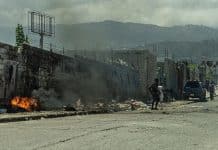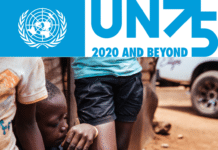(Press Review, Norway)
The UN-reform is taking a step further. On tomorrow’s agenda is a meeting of the High-level panel on UN system-wide coherence in Oslo, Norway. Norwegian Prime Minister Jens Stoltenberg and the rest of the Secretary General’s high level panel will continue the work of reforming the UN on three areas: humanitarian aid, environment and development.
Several stakeholders in Norway have joined the debate on the reform of the UN, especially with regard to development work. A vast majority agrees on the need for reform and a more efficient United Nations, but there is a multitude of different approaches and opinions. At the core of the debate is how the UN can reduce its administrative costs and become more efficient. In regard to such matters, Program Director of Plan Norway Bjørn Rongevær opined in the daily Dagsavisen, Oslo, that the UN’s development work should be coordinated by one agency instead of the current duplication between agencies.
Yet, in an Op-Ed in Dagbladet, Oslo, the Secretary General of UNICEF Norway Kjersti Fløgstad, slammers Mr. Rongevær’s propositions. She is alarmed by the possibility that vulnerable and marginalised groups, such as children, will be overlooked as a consequence of a joining together of different programs and funds. Casting reform, stronger coordination and efficiency as crucial, she argues however that a merger is not the right way to reach these goals. “UNICEF is the voice of the children in the UN, and we want to remain as such.”
In a stinging criticism of the reform process, Torild Skard, Researcher at NUPI and former Director of UNESCO and UNICEF in Norway, chimes in on Fløgstad’s reasoning. “The proposals which are currently on the table might in fact be weakening – and not strengthening – of the UN,” says Mrs. Skard in an Op-Ed in Dagbladet, Oslo. She criticizes a possible merger of programs and funds into three pillars, environment, development and humanitarian aid, which has been proposed. Offering a different perspective, she suggests rather to strengthen UNICEF, UNFPA, and UNCTAD, and even to establish a UN-agency for women issues. “The different programs are not established without any reason, but in order to solve specific tasks, secure technical competence, and to bring in perspectives and to look after certain interests which in other circumstances would have been neglected.”
Furthermore, Fløgstad’s Op-Ed chides in on Mr. Rongevær’s proposal that the UN should not have their own development programs, but instead an advisory function to the recipient countries, stating that she “can hardly see it would strengthen the UN to be a desk organization without any experience from the field.” In addition, Mrs. Fløgstad is worried that the UN should become even more unclear and unapproachable for most people if the different programs and funds are joined together.
(Sources: Dagsavisen, Oslo, Dagbladet, Oslo, RORG Aktuelt, Oslo)









